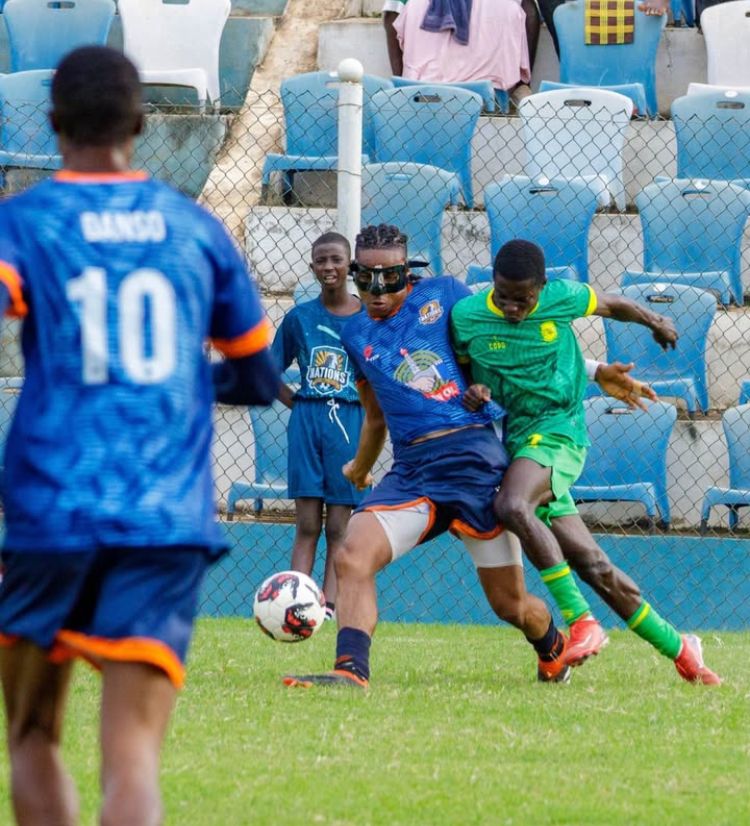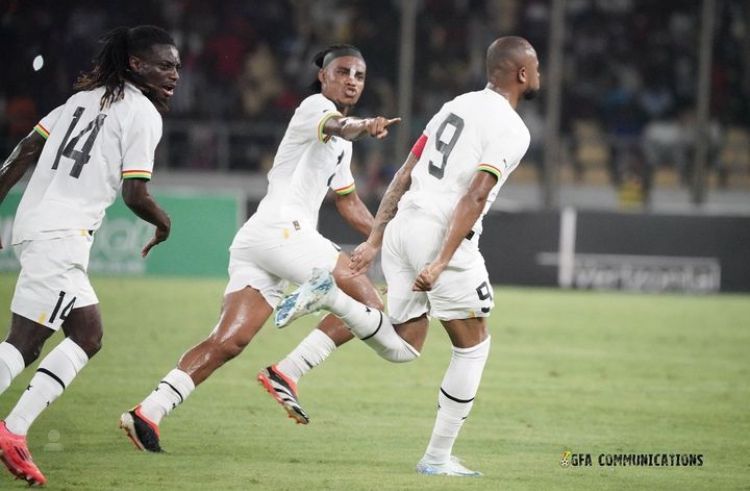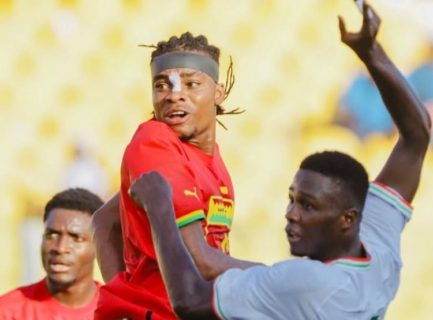The shining star: Razak Simpson breathes new hope into Black Stars’ defence
In the late 1930s, veteran defender Timothy Darbah, widely known as Tim Darbah, was a key figure in the Ebusua Dwarfs defense. As both the team captain and its best player, he earned widespread acclaim. By 1951, Darbah was part of an elite group of players, including Asante Kotoko’s Kweku Duah, who represented the generation that pioneered defensive tactics for the Gold Coast (later known as Ghana). This group also played in Ghana’s first international match against Nigeria in 1945.
Ghana’s footballing legacy resonates strongly today, especially when compared to the current state of the game. A noticeable contrast has emerged, particularly in the Black Stars’ defensive consistency. The decline in their defensive strength is evident, especially when reviewing the changing dynamics and performance of the national team.
Before the turn of the century, the Black Stars were built on a strong foundation, with many key players emerging from the Ghana Premier League. The country’s two most prominent clubs—Hearts of Oak and Asante Kotoko—produced a wealth of talent that played a significant role in the team’s success.
However, in recent years, the Black Stars have struggled, particularly in defense. This decline began when the formidable partnership between defensive stalwarts John Mensah and Jonathan Mensah ended. Since then, Ghana’s defense has been in disarray, with numerous attempts to find a reliable replacement proving futile. At one point, John Boye helped stabilize the backline temporarily, but the defensive frailty persisted.
Although this defensive challenge has been a major setback for the Black Stars, it is not unique to Ghana. Many top international teams have faced similar issues. Even Italy, once known for its impenetrable defense built on the catenaccio philosophy, has experienced periods of vulnerability. Likewise, countries like England, Spain, Germany, and France have undergone transitions following the retirement of key defenders.
Fortunately, a solution may be on the horizon for Ghana. Black Stars coach Otto Addo has struggled to find a consistent defensive pairing. The former Dortmund trainer has used eight different defenders in the center-back role, including Daniel Amartey, Alexander Djiku, Mohammed Salisu, Alidu Seidu, Kasim Nuhu, Jerome Opoku, Joseph Aidoo, and Abdul Khalid Mumin. Each of these players has paired with another in an attempt to find the right combination.
With seven of these eight defenders unavailable, Addo called up local talent Razak Simpson from Nations FC and gave him a starting spot in the match against Angola’s Palancas Negras in Luanda. Despite the high stakes, the 26-year-old Simpson played with confidence, showcasing remarkable anticipation and awareness in disrupting Angola’s relentless attacks. Positioned at the center of a back three, Simpson’s distribution was excellent, and his leadership on the field was evident.

In Ghana, fans are often hard to please, but when they offer praise, it’s certainly well-deserved. In Simpson’s case, the recognition was notable. The Nations FC defender has been instrumental in his club’s recent defensive record, having helped them four clean sheets in their last four games—a testament to the work of coach Kassim Ocansey Mingle at the club. But despite having played a key role in the development of Simpson, Mingle himself would still have been impressed with Simpson’s performance against Angola.

The match may have ended in a draw, but Simpson won. The commentary from home was overwhelmingly positive, and Ghanaians would have likely sung his name if the match had been played on home soil. Some were amazed by the confidence he displayed, particularly in a one-on-one aerial duel against Angola’s Luvumbo.

Despite the Black Stars’ disappointing result in the draw against Angola—leading to their failure to qualify for the Africa Cup of Nations for the first time in 21 years and ultimately finishing last in Group F—Simpson remained a beacon of hope. Amid the chaos, he was the one bright spot.
As Ghana looks toward future competitions, Razak Simpson’s presence in the backline could be the key to reigniting the country’s footballing glory.



